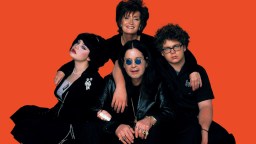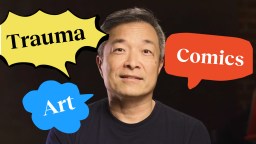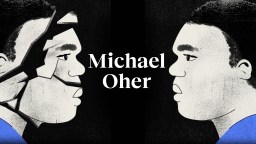Shaka Senghor spent nearly two decades of his life in prison, but he felt trapped long before his sentence began.
“In life there are massive doors that stand in the way of our personal freedom,” explains the New York Times bestselling author and lecturer. “These narratives that imprison us – sometimes it’s guilt, sometimes it’s grief, sometimes it’s sadness – they lock us into a space where we feel like our whole world has contracted in a way that doesn’t allow us to move about freely within and outside of ourselves.”
From a very young age, Senghor, who grew up in Detroit, suffered a barrage of trauma. His childhood friend was murdered, he was robbed at gunpoint, he was seduced into the crack cocaine trade, and at the age of 17 he was shot multiple times.
These are just a few of the disturbing events that made him believe there were only two eventualities to the life he was locked into: an early grave or a prison cell. When he turned 19, he made a grave mistake that led him down the latter path.
“I was at my house and a car pulled up,” he remembers. “An argument ensued and escalated and I turned to walk away. But I heard what I thought was a car door opening. I remember my body tensing up. I was triggered by my prior experience and I fired what turned out to be four fatal shots. I was subsequently arrested and sentenced to second degree murder. It had all finally come true…I was destined to be an incarcerated soul.”
But instead accepting his fate and giving up on himself, Senghor chose to spend his 19 years in prison (seven of which were spent in solitary confinement) focusing on a journey of self-improvement. He spent the time educating and bettering himself in a bid to finally unlock his inner freedom, despite being behind bars.
“I was incarcerated well before I was in prison and I was free before the gates of prison opened up and let me out,” he says. “I think back on that time and think about how lucky and fortunate I was to find the keys that helped me regain a sense of what it means to be free. It started with what I call my three personal miracles. The first one was books. I remember reading Malcolm X’s autobiography and understanding that this man used education as a tool to escape prison. So I embarked on a quest to read as many books as I could and I began to feel just an inkling that there was a possibility of a life beyond bars.”
This first step was a relatively easy one, but his second and third would be harder pills to swallow: learning about the man he killed and discovering that his son knew the truth of his imprisonment.
“Five years into my sentence I received a letter from a woman named Nancy. She began to articulate to me the man whose life I was responsible for taking,” says Senghor. “In that letter Nancy handed me the second key and that key was forgiveness.
“A few years later I received the third key, which also came in the form of a letter. This time it was from my own child. He told me that his mother told him that I was in prison for murder. I remember my heart breaking into pieces and I realized in that moment that I owe my son a father he can be proud of.”
These epiphanies gave Senghor mental clarity and a sense of freedom he hadn’t felt in years, which he put to use by redefining the harsh world around him. “I began to reshape how I thought about that environment,” he says. “Instead of a solitary confinement cell it became a university, it became a creator’s den, it became a meditation room. There was nothing more liberating to me than being able to reimagine the most brutal of environments as something positive.”
Senghor was released from prison in 2010 and has gone on to make the most of his freedom by becoming a celebrated author with Writing My Wrongs, a book that explores the idea that the troubled narratives we find ourselves in do not define us. He’s also an inspirational speaker, delving into the topics of fatherhood, masculinity and the power of transformation, and has delivered lectures on these subjects at educational facilities across the United States.
Freedom also continues to be a subject of interest to Senghor, even on the outside. His last book, Letters to the Sons of Society: A Father’s Invitation to Love, Honesty, and Freedom, contains a series of letters to his sons that traces his journey as a Black man in America. These letters unpack the toxic areas of masculinity and success that led him down the wrong path as a child, and also act as a guide to fathers who don’t know how to communicate love and to boys who have been forced to grow up before their time.
“Freedom to me is gratitude,” he says when asked what that word really means to him. “Freedom to me is dancing for no reason at all, it’s laughing late into the night. But the greatest expression of freedom to me now is the ability to emote and to cry. Freedom is trusting that the moment you’re in is divine. That’s what I choose to believe.”
We interviewed Shaka Senghor for Perception Box Stories Untangled, a Big Think interview series created in partnership with Unlikely Collaborators. As a creative non-profit organization, they’re on a mission to help people challenge their perceptions and expand their thinking. Often that growth can start with just a single unlikely question that makes you rethink your convictions and adjust your vantage point. Watch Shaka Senghor’s full interview above, and visit Perception Box to see more in this series.
Words: Jamie Carson
SHAKA SENGHOR: I was incarcerated well before I was in prison, and I was free before the gates of prison opened up and let me out. In life, there are massive doors that stand in our way of our personal freedom. These narratives that imprison us, sometime it's guilt, sometime it's grief, sometime it's sadness. They lock us into a space where we feel like our whole world has contracted in a way that doesn't allow us to move about freely within and outside of ourselves.
From my early beginnings, I experienced trauma at a very high level, and it came full circle when I was about 14 years old. I had run away from home and I got seduced into the crack cocaine trade. I experienced some of the most horrific events imaginable. My childhood friend was murdered, I was robbed at gunpoint, and at the age of 17, I was shot multiple times. I was locked into this narrative that said my life could only have limited outcomes: an early grave or a prison cell. I believed at that time that this was what my life was meant to be.
I had just turned 19 years old. I was at my house and a car pulled up. An argument ensued and escalated and I turned to walk away. But I heard what I thought was the car door opening. I remember my body tensing up. I was triggered by my prior experience, and I fired what turned out to be four fatal shots. I was subsequently arrested and I was sentenced for second-degree murder. It had all finally come true - I was destined to be an incarcerated soul.
Over the 19 years of my incarceration, seven of those years were in solitary confinement. And I'll never forget the sense of shame that I felt. I was given the bland prison blues that had been worn by the person's number who had been etched out and whose mine had been replaced with. And I remember feeling so dehumanized. With each moment, it felt like the walls were getting tighter and tighter, and the door getting smaller and smaller. I realized the impact and power of solitary confinement in its ability to dim the light of freedom. And I think back on that time and think about how lucky and fortunate I was to find the keys that helped me regain a sense of what it means to be free - but that didn't come easy.
It started with what I call "my three personal miracles": The first one was books. And I remember reading Malcolm X's autobiography and understanding this man used education as a tool to escape prison. And so I embarked on this quest to read as many books as I could, and I began to feel just a inkling that there was a possibility of a life beyond bars. And then five years into my sentence, I received a letter. It was a woman named Nancy. She began to articulate to me who the man whose life I was responsible for taking who he was. And in that letter, Nancy handed me the second key, and that key was forgiveness. A few years later, I received the third key, which also came in the form of a letter. This time it was from my own child, and he told me that his mother had told him that I was in prison for murder. And I remember my heart breaking into pieces, and I realized in that moment that I owed my son a father he could be proud of. And that recognition and acknowledgement began to unlock the ideas that I had about my own personal freedom.
The challenge that I was faced with every day was to decide in each moment who I wanted to be. I began to even reshape the way that I thought about that environment. Instead of a solitary confinement cell, it became a university. It became a creator's den. It became a meditation room. And there was nothing more liberating to me than being able to reimagine the most brutal of environments as something positive, even though it wasn't.
It was my last day in prison, one day after my 38th birthday, and I remember those doors just opening up, and I remember taking that first breath. Everything appeared different, and it was something magical about driving through the city, seeing the sights and sounds of Motown. It was almost like a ballet of just people moving about with a carelessness and a freedom that was new to me, and there was like this electrical feeling inside of me.
Freedom, to me, is gratitude. Freedom is dancing for no reason at all. It's laughing late into the night, being a dad, being curious, moving throughout the world with purpose and intent, and it's the ability to love and be loved. Those things are so liberating. But the greatest expressions of freedom for me now is the ability to emote and to cry. Freedom is trusting that the moment you're in is divine, and that's what I choose to believe.





